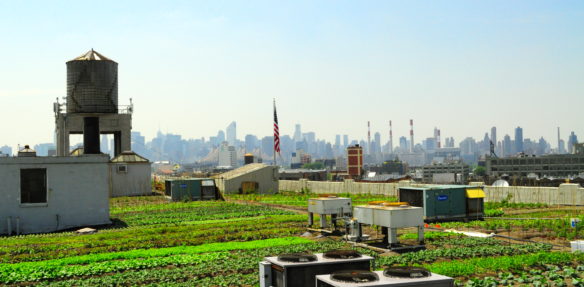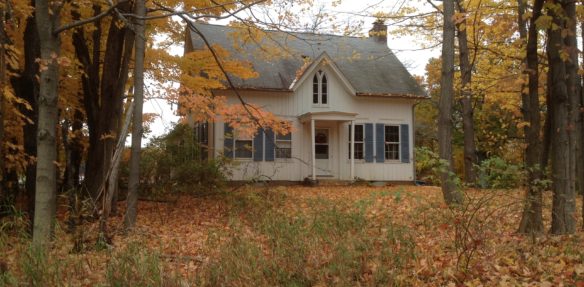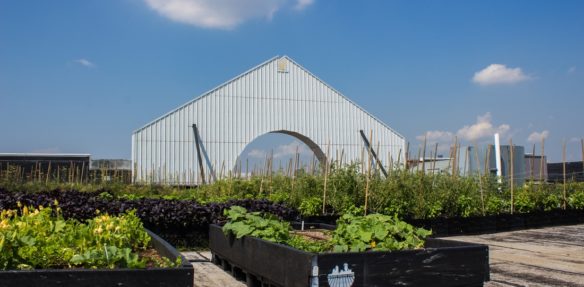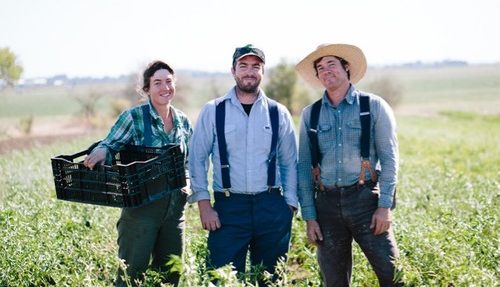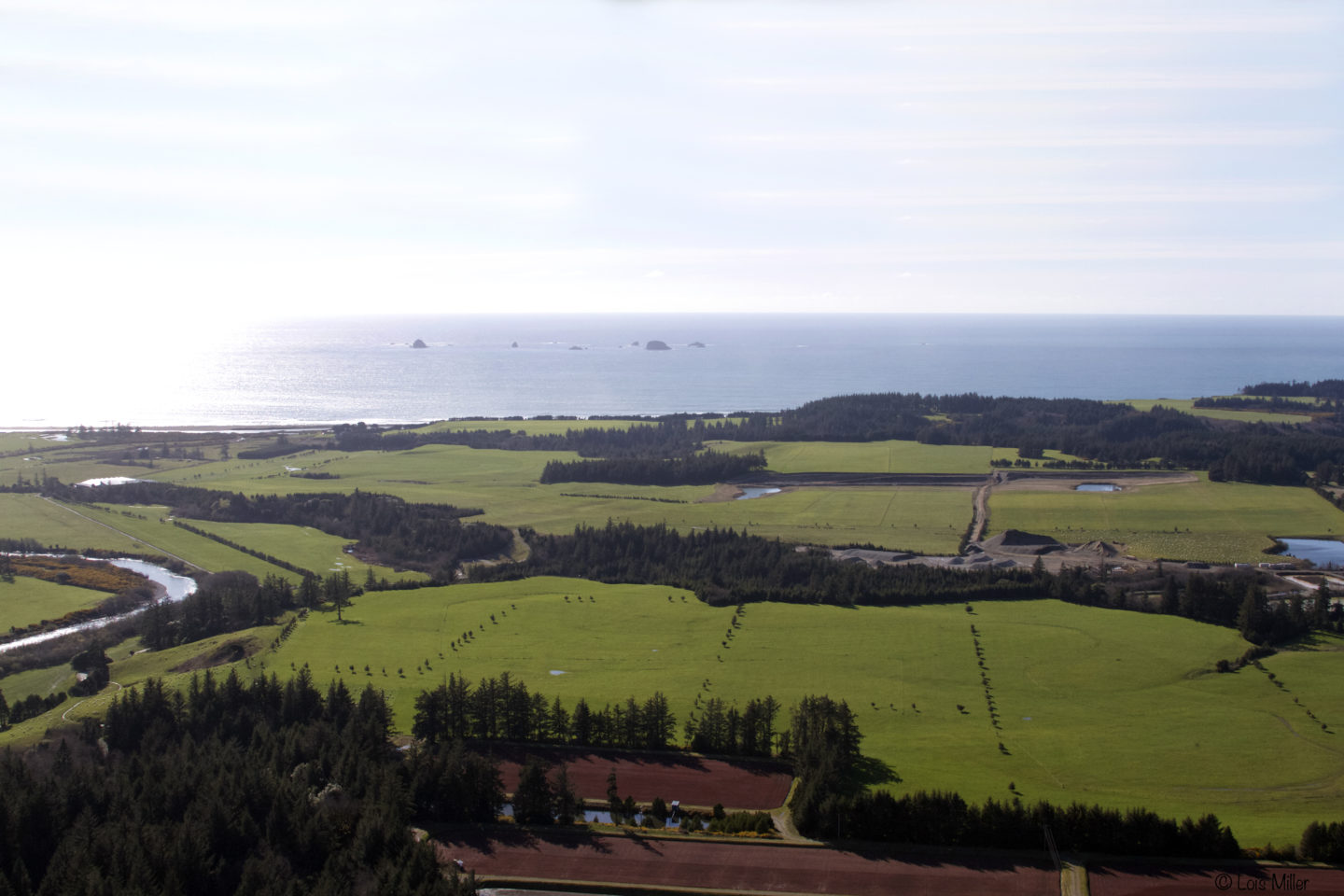
“We’ve been here so long that I can’t even imagine not having this.”
– Mary Wahl
The Importance of Conservation
The McKenzie family (from whom the Wahls are descendants) has been raising sheep in Oregon since 1874. Their 2,000-acre ranching operation includes forested areas, ponds, riparian buffer vegetation, and wetland habitats. Conservation is a Wahl family tradition, and they believe in protecting the resources of the ranching operation for future generations. The Wahls have enrolled in various federal USDA conservation programs over the years, including the Conservation Reserve Enhancement Program, the Wildlife Habitat Incentive Program, and the Environmental Quality Incentives Program. As the family continues sorting out how to pass the ranching operation to the fifth generation, conservation conversations will be a key part of the transition.
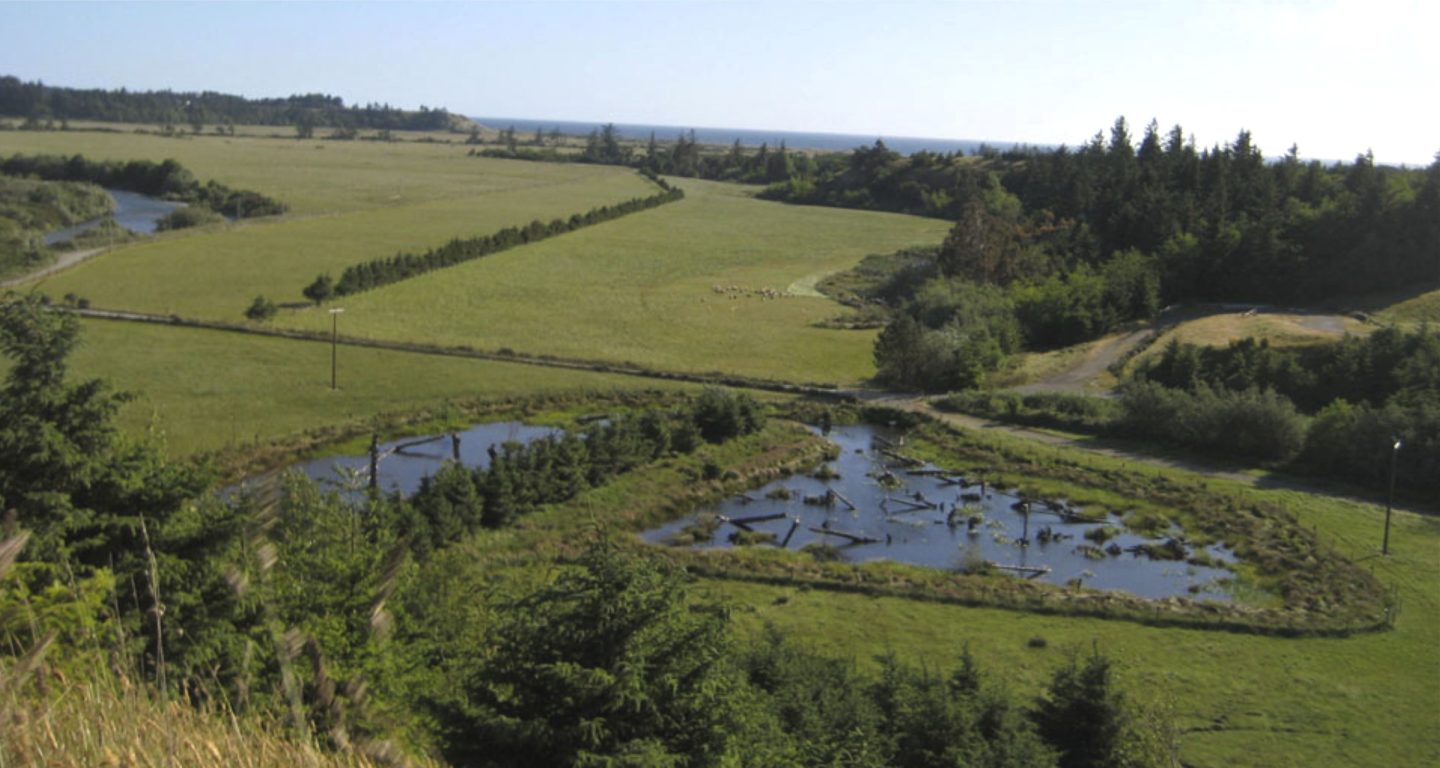
Multi-Member Partnership Keeps The Farm In The Family
The Wahl siblings’ great-grandparents (the first generation) purchased the land as a homesteading operation. The ranch was then passed to the second generation, and when the land was passed to the third generation, it was divided among four siblings, with each receiving a portion of the whole. One of these four third-generation McKenzie siblings was the mother of Mary Wahl and her fourth-generation siblings (the Wahl siblings that currently own the Wahl Ranch). However, Mary’s mother had nine children and when she was ready to pass the land to her children she wanted the ranch left whole, rather than subdivided into several parcels. Mary’s mother worked with an attorney to create a legal partnership entity and to draft a partnership agreement for the ranch, wherein all the fourth-generation siblings possessed equal percentage ownership interests. Mary credits equal ownership of the partnership as the distinguishing mechanism that created a dynamic necessary to allow the family to meet regularly and make decisions as a unit.
Of Mary’s eight siblings, four live on the south coast of Oregon and four live in the Willamette Valley. Each sibling still owns 1/8 of the ranch as an indivisible whole (via the partnership). The group itself has a right of first refusal if any siblings want to sell their percentage ownership interest in the partnership, but no one has wanted to sell their portion thus far. The entire group of siblings owns and manages the land, while a significant subset of siblings (three brothers and one sister) lease the ranch land from the partnership and own the animals involved in the ranching operation.
The ranch lease is a one-year rolling lease that may be reviewed and renegotiated each year. The four siblings who lease the land pay rent to the partnership in an amount close to the prevailing agricultural market rate for the land in the area.

Hopes For The Future
The details of the farm succession plan for transferring the land from the fourth generation to the fifth generation of Wahls are still being worked out. Many members of the fifth generation reside in different areas, making geography a complicating factor in this generational transition. Mary and one brother are on the board of the local land trust and the family is pursuing options for selling a conservation easement to the land trust to facilitate the farm transfer, maintain the family’s land base for agriculture, and preserve the delicate habitat of the ranchland. The Wahls want to ensure that the land is protected for future generations against a constant barrage of pressure to develop. The Wahl Ranch exists along the longest undeveloped stretch of land on Oregon’s coast, nicknamed “the dark coast” because of the lack of light at night due to the undeveloped state of the land. Although the land is zoned for agricultural use only, the family does not believe the zoning ordinances provide adequate permanent protection because they have seen other land be developed in spite of the zoning protections. Working with the land trust to explore funding possibilities for purchasing a conservation easement is among the family’s next steps as they chart a path forward in passing the land to the next generation.
